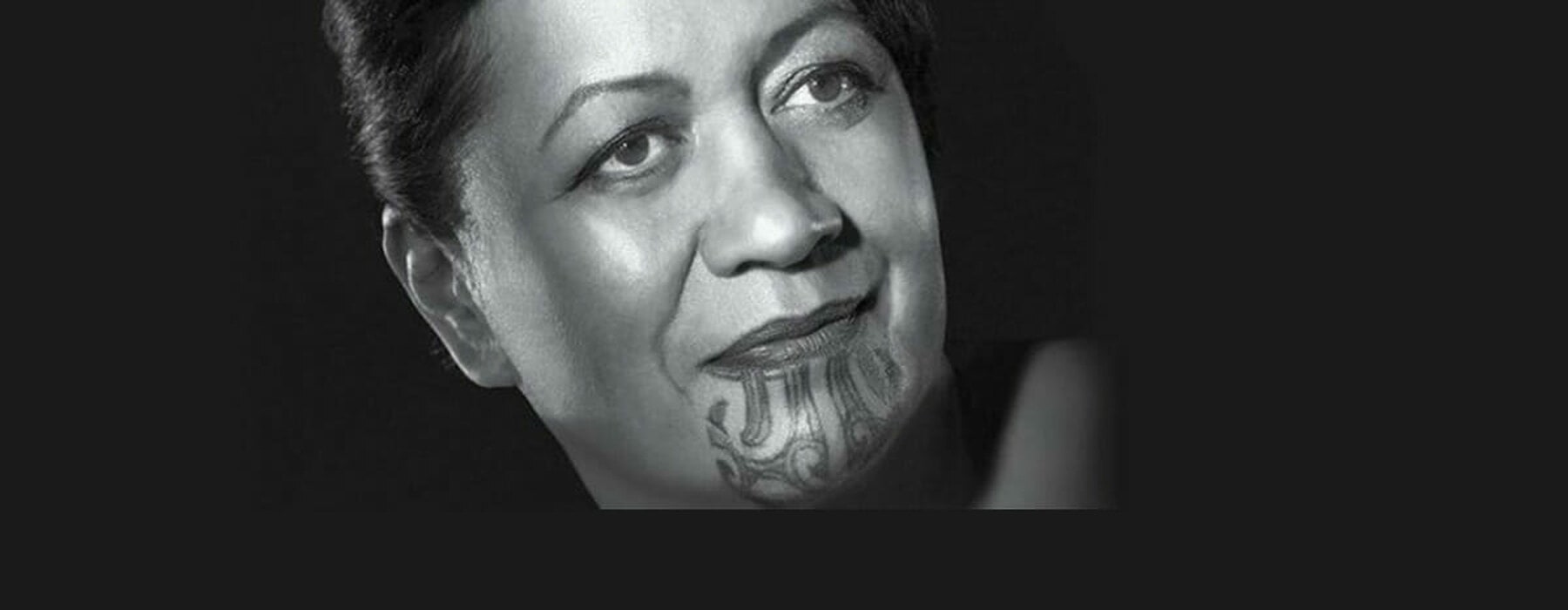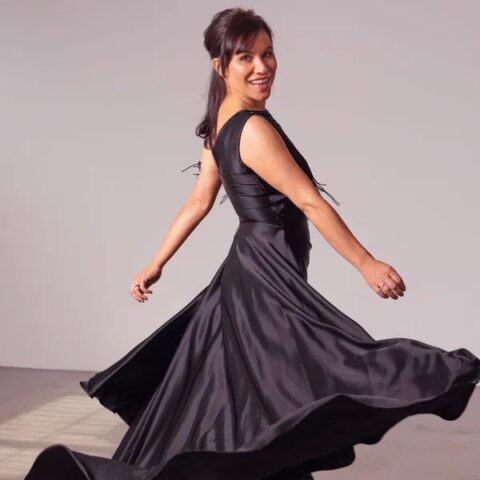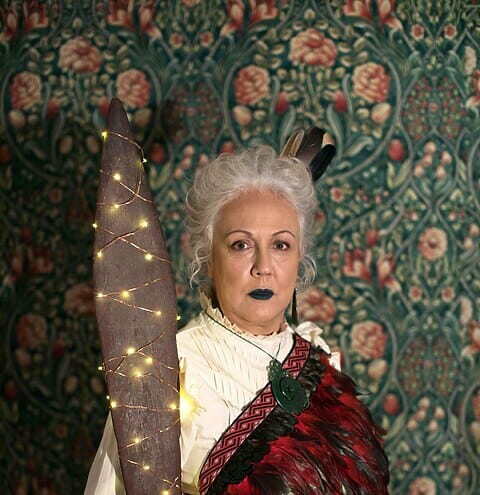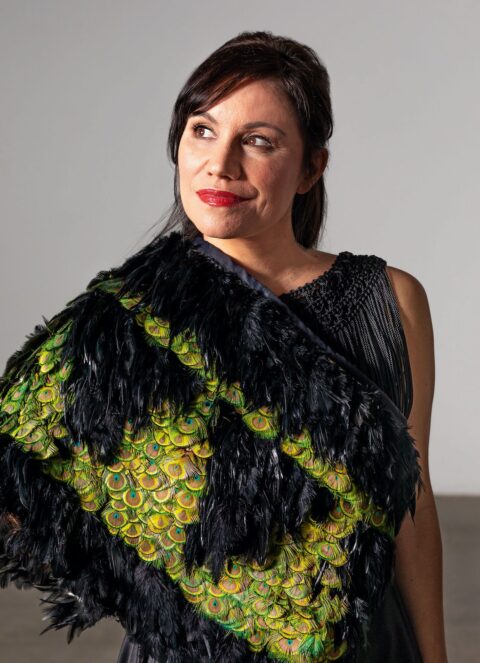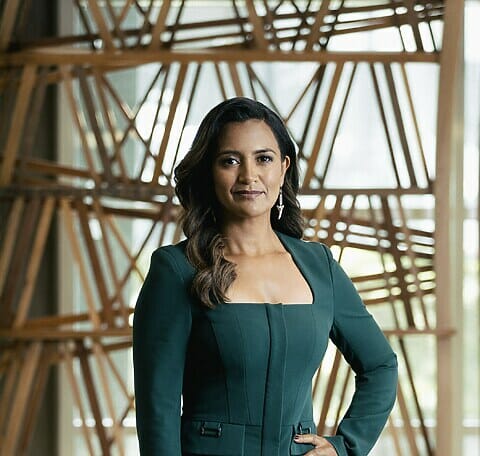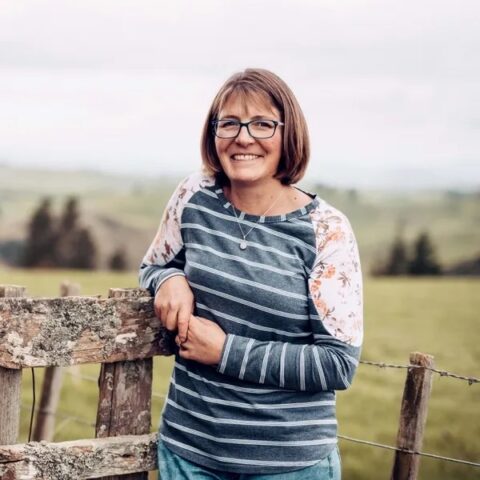Whirimako Black is the kind of person who makes you feel like you’ve known each other for years – even though we’re meeting for the first-time and it’s on Zoom.
She sits on the couch of her Ruatoki home, windows and doors open, and we chuckle about the heat, needing glasses to see computer screens, having dogs who bark in the background, and the importance of choosing to be kind rather than right. Now in her early sixties, Whirimako (Ngāi Tūhoe) collaborated with Salmonella Dub on several new songs as well as the band’s nationwide tour and is now preparing to headline He Kete Waiata, the closing show of the 2023 Auckland Arts Festival.
It features fellow bilingual vocal stars Allana Goldsmith, Leon Wharekura and Dixon Nacey singing jazz standards and new material in te reo Māori and English. Whirimako’s playlist includes her take on the jazz music that, working with legendary composer and musical arranger the late Russ Garcia, she’s become renowned for as well as waiata from her iwi, Ngāti Tūhoe. (She also has whakapapa to Ngāti Tūwharetoa, Ngāti Ranginui, Te Whakatōhea and Te Whānau-ā-Apanui.)
“He Kōpara is a result of faith, reo and how beautifully the reo blends into the classics of some of my favourite singers.” Whirimako has lent her voice to more than 20 albums which have won her awards such as Best Māori Album, Best Jazz Album and a Silver Scroll for Best Māori Composition – an accolade she shared with her mum.
Made a Member of the New Zealand Order of Merit and later recognised with an Arts Foundation Laureate Award, she’s collaborated with everyone from symphony orchestras and electronic music groups both at home and abroad, performed internationally and become recognised as a world music star, scored television shows and spent years mentoring young musicians for Māori Television.
It’s a career grounded on whakapapa which has taken her into territory that her cousin, composer, singer and academic Hirini Melbourne, explored as he went about reviving Māori music. Whirimako has also studied and delved deeper into her musical heritage, learning more about that handed down by generations of Tūhoe ancestors.
She could be described as something of an ethnomusicologist as well as a singer/songwriter and te reo champion. The ninth of ten children to parents Stewart and Anituatua Black, Whirimako grew up in the Ruatoki Valley on the edge of Te Urewera where her first language was Te Reo Māori and her whānau made its own entertainment.
“Our mum would bring in the songs from the ‘old school,’ which was great because it kept us learning those songs and remembering them, and then we would do all the modern songs in Māori or English depending on the mood or who turned up,” she recalls. “There were songs for entertainment but there were also mōteatea – the serious songs, the ones about the past that recalled people who were no longer here; we sing those songs to bring their memory back. I feel like the mōteatea I have been learning is like looking at a journal of time.”
The radio was on, too, and Whirimako listened to jazz greats like Ella Fitzgerald, Billie Holliday, Nine Simone and Mahalia Jackson with her mother: “She loved Nina Simone and Mahalia Jackson, but I was always team Billie.”
Whirimako wrote waiata and performed from childhood, excelling at kapa haka, and crediting her older sister and her mum and dad as her first collaborators. Aged 15, she joined a Bay of Plenty covers band that led to her singing with musicians who had played with Howard Morrison and The Māori Volcanics. A decade in Australia followed but Whirimako found getting a break tough, so studied music theory at the Sydney Conservatorium of Music.
Returning home in her late twenties, she was welcomed back by one of her sisters who sung her the 190-year-old Mataatua Tūhoe moteatea Taku Rakau which made Whirimako determined to learn more about her musical roots. For a time, the mother of five performed with the all-woman Tuahine Whakairo (Sisters in Art) and says while it was tough to build a repertoire of original songs, it strengthened her resolve to write and record music in English and Te Reo.
Taonga pūoro player Justin Kereama has also been a regular collaborator, introducing traditional Māori instruments into contemporary music. She says it’s another way to introduce audiences to kaupapa Māori and the reo, to show what a beautiful language it is. But, at times, it’s been a difficult path to walk because she worried about challenges to her right to sing these songs and offending iwi, hapū and whānau. “I believe my ancestors – my tupuna – wanted me to voice it, to remind us again where we came from and pat ourselves on the back that we have survived.
“I think I’ve had an influence on younger people because I dared to, so now they dare to.”
He Kete Waiata closes Auckland Arts Festival on Sunday, March 26 at the Auckland Town Hall. See here for further details.

